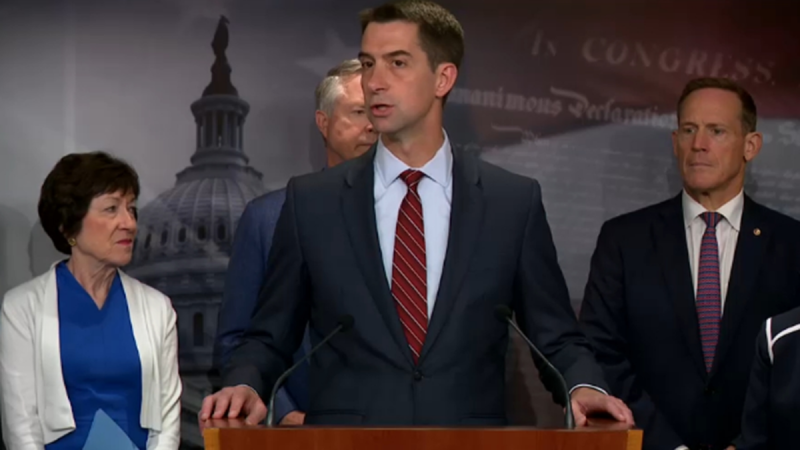In a recent statement, Senator Tom Cotton asserted that if former President Donald Trump were still in office, the ongoing conflict between Israel and Hamas would likely be resolved by now. This provocative claim has stirred debate and speculation about the potential impact of different leadership styles on international conflicts.
One key factor highlighted by Senator Cotton is Trump’s approach to foreign policy, characterized by a strong stance and decisive action. During his presidency, Trump made significant strides in Middle East diplomacy by brokering the historic Abraham Accords, which normalized relations between Israel and several Arab nations. The senator believes that Trump’s proactive involvement would have prevented the recent escalation of violence between Israel and Hamas.
Trump’s unconventional style of diplomacy, often marked by direct engagement and personal relationships with world leaders, could have offered a unique perspective on the Israel-Hamas conflict. His emphasis on building alliances and leveraging economic and military power to achieve strategic objectives might have provided a different path towards de-escalation.
Moreover, Senator Cotton’s assertion raises questions about the current administration’s handling of the crisis. While President Joe Biden has expressed support for Israel’s right to defend itself, critics argue that his more cautious approach has failed to bring about a swift resolution to the conflict. The senator’s remarks serve as a reminder of the contrasting leadership styles and policy priorities between the two administrations.
The Israel-Hamas conflict, with its complex historical and geopolitical roots, presents a formidable challenge for any leader. Trump’s supporters argue that his unapologetically pro-Israel stance and confrontational approach towards adversaries would have sent a strong deterrent message to Hamas and other militant groups. In contrast, Biden’s emphasis on multilateral diplomacy and coalition-building may take longer to yield tangible results in such a volatile region.
Ultimately, the debate over how different presidents would have handled the Israel-Hamas conflict is a speculative exercise. The dynamic nature of international relations and the intricate web of interests at play make predicting outcomes a challenging task. However, Senator Cotton’s assertion raises important considerations about the role of leadership in shaping the course of conflicts and the potential impact of divergent foreign policy approaches.
As the Israel-Hamas conflict continues to unfold, it underscores the need for nuanced analysis and a comprehensive understanding of the region’s complexities. Whether Trump’s assertive style would have brought about a speedier resolution or Biden’s diplomatic efforts will yield sustainable peace remains a matter of conjecture. What is certain is that the conflict demands unwavering attention and thoughtful engagement from the international community to mitigate human suffering and work towards a lasting solution.




























